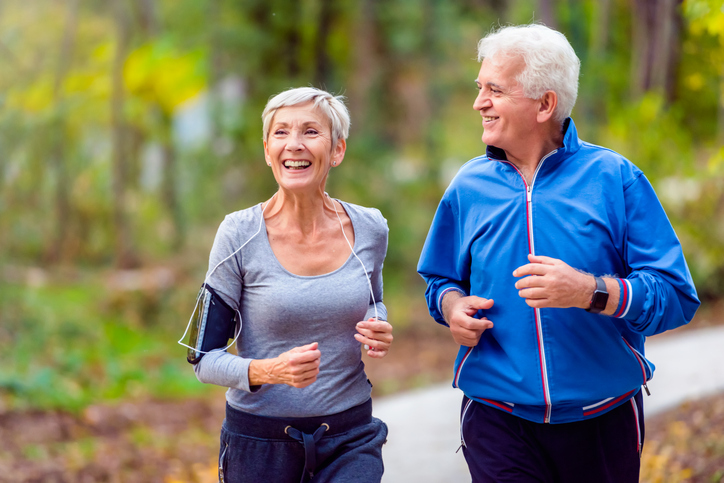“Getting older doesn’t automatically mean less vibrancy and vigor, or lower energy levels — no matter what our youth-obsessed culture would have you believe.” (HopkinsMedicine.org)
Anybody can feel sluggish from time to time. You may have had a long day or are catching a cold. Having said that, if you’re experiencing low
er energy levels on a more consistent basis, it may be time to delve into underlying causes to find ways to boost your energy.
Hopkins Medicine recommends several tips to help boost your energy levels, including:
- Eat whole foods as much as possible. Processed foods can make you feel tired, while fresh ones “renew energy levels with vitamins, minerals and antioxidants.”
- Talk to your doctor about your vitamin D. Ideally, we get this from the sun but older adults can’t typically convert sunlight to vitamin D as easily. Your doctor may recommend a supplement.
- Check your medications. There are some with side effects that may make you feel sluggish. Ones that often do include high blood pressure prescriptions, as well as antihistamines and antidepressants. If you suspect a side effect may be playing a role, talk to your doctor about your options.
As part of WebMD’s healthy aging article series, they echo the advice about eating the right foods to boost your energy while emphasizing the importance of an active lifestyle that includes exercise. If you have some physical limitations, the site recommends you get creative, saying, “If arthritis in your knees keeps you from running or playing basketball, swimming or cycling might work for you.”
Also, make sure you’re getting enough rest. Most people need about seven hours of sleep per night; so, if you’re not getting that much, it’s natural to feel tired. To rev up your energy, you’ll likely need to adjust your sleep patterns, and tips for good sleep include:
- Go to bed and get up at the same time each day, including weekends.
- Late in the day, avoid caffeine and exercise; if you use nicotine or alcohol, avoid them later in the day.
- Create a relaxing pre-bedtime routine and make your bedroom sleep-friendly, which means a comfortable temperature in a room without bright lights, television set, or computer.
If you find that you still can’t get good rest, talk to your doctor. Your low energy levels may be connected to insomnia.
Finally, Rush University Medical Center provides insights on how healthy aging doesn’t mean having as much energy as you did during the “boundless energy of childhood.” More strenuous activities will likely feel more tiring. But there are strategies to up your energy at any age.
This article largely focuses on the types of exercise needed for better heart health. This is a combination of aerobic exercises to raise your heart rate (walking, bicycling or swimming, for example); strength exercises (such as lifting weights); and flexibility ones (like stretching).
When to See a Doctor
If you’ve felt fatigued for several weeks and can’t seem to boost your energy, the National Institute of Health suggests it’s time to contact your doctor. At that appointment, you will probably be asked about your:
- sleep patterns
- daily activities
- appetite/diet
- exercise habits
The doctor will likely perform a physical exam and order tests to explore why you feel sluggish. If the exam and lab tests go well, great! You may receive recommendations related to diet and exercise, sleep and so forth. Other times, a medical issue may be uncovered that can be treated with medicine — perhaps related to your thyroid, as one example. As another, depression may be diagnosed with recommendations made.










